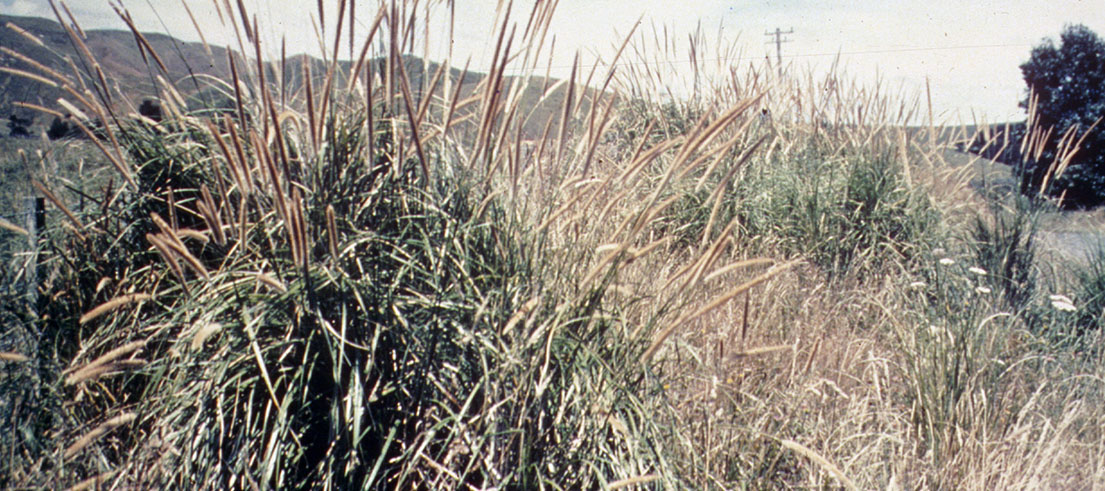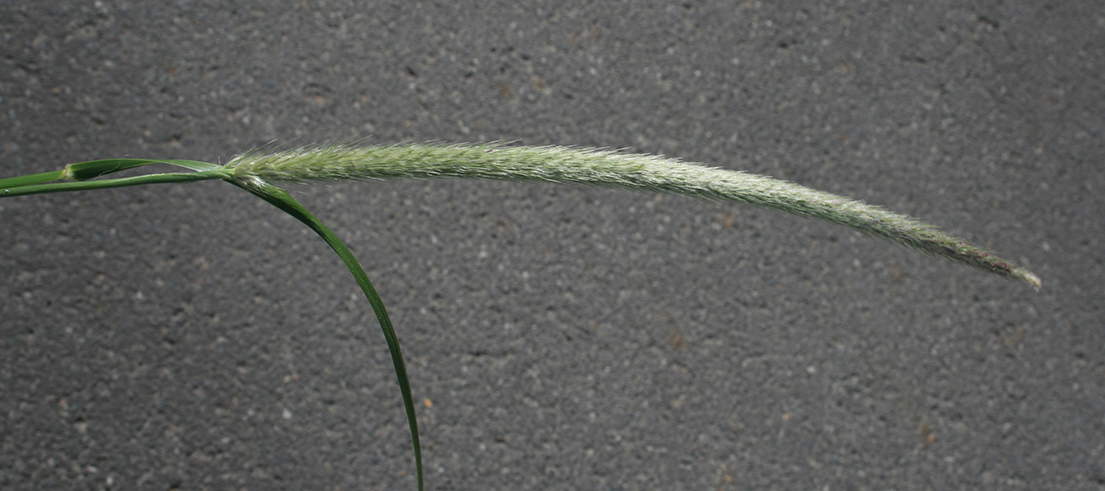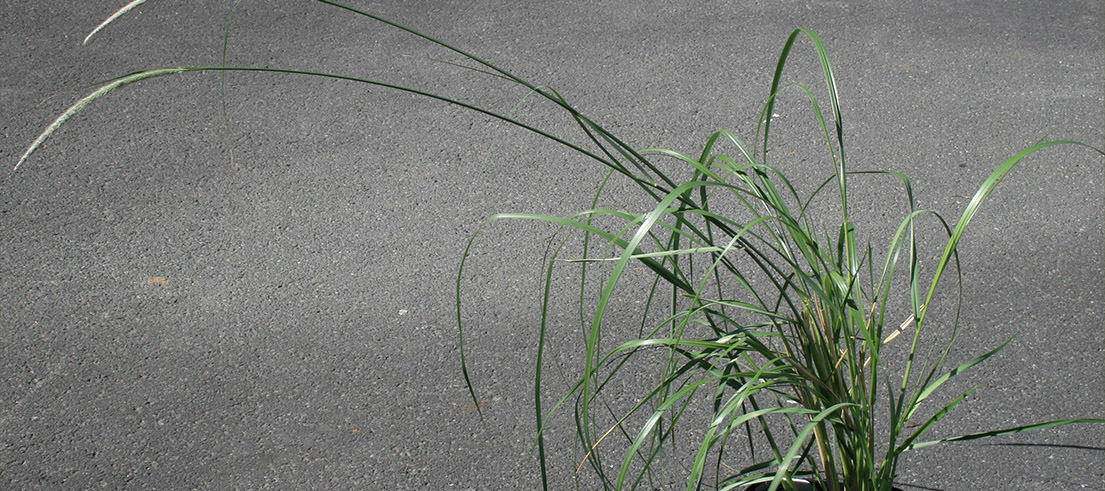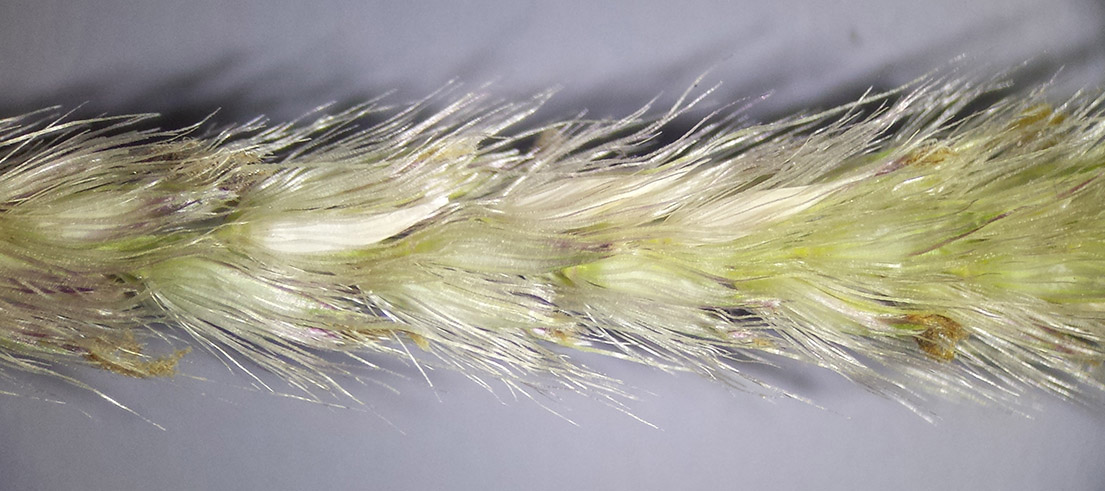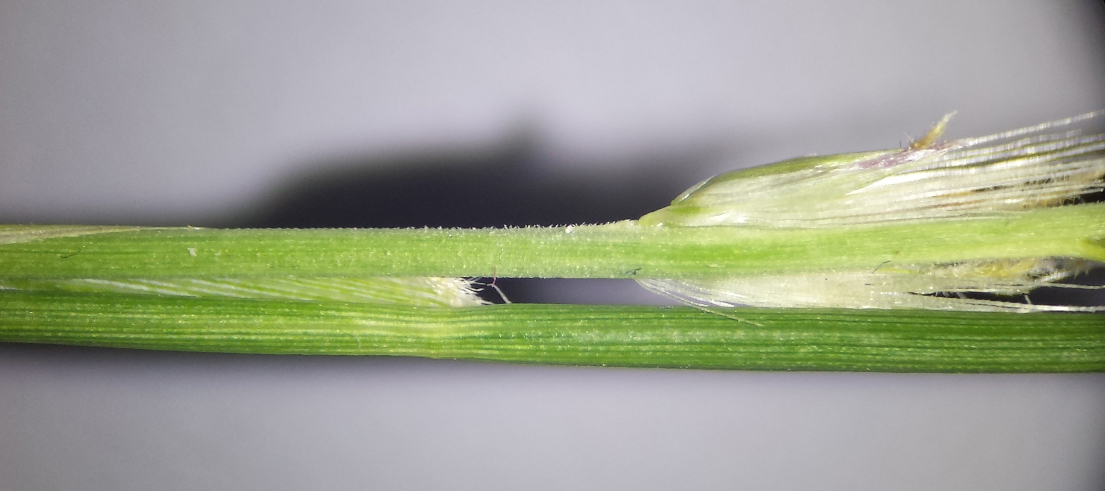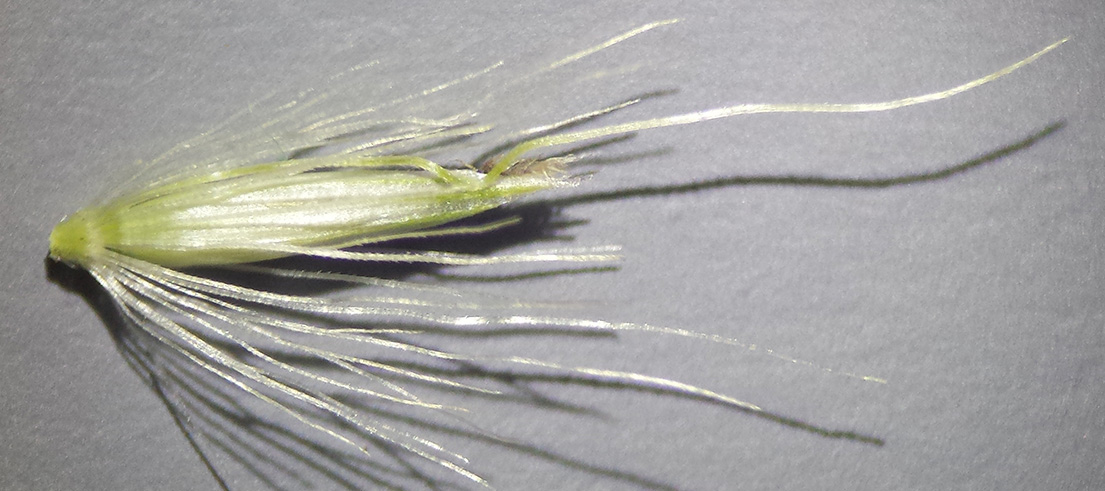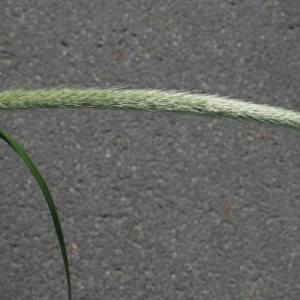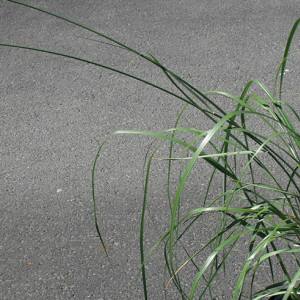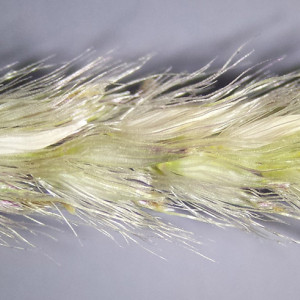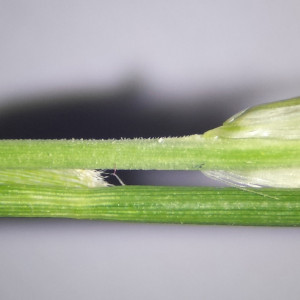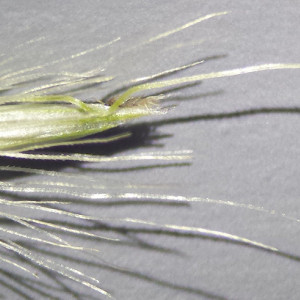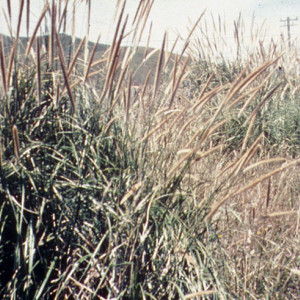A clump-forming perennial grass around 2m tall with deep and fibrous roots. African feather grass outcompetes native plants, is unpalatable to stock, and is a fire hazard.
Description
- Stems are erect, purple/white and covered in fine hairs.
- Leaves are light green with a darker green underside, strongly ribbed, and tough.
- The spiked flowerhead is narrow and cylindrical.
- Seeds dispersed by wind, water, and via animal pelts. Vegetative spread from rhizome root fragments.
- Habitats include pastures, grasslands, shrublands, roadsides, streambanks, swamps, wastelands, urban areas, cemeteries, and gardens.
What you need to know
Aggressive invader, outcompeting native plants. Unpalatable to stock. Dense clumps may restrict site access, is a fire hazard, and can block waterways. It is difficult to control due to the extensive root system.
Management approach
This is a declared pest managed under the Canterbury Regional Management Plan 2018 – 2038 (PDF file, 10.6MB) within the progressive containment programme.
Progressive containment
Pests in the progressive containment programme are present in low numbers or have limited distribution in Waitaha/Canterbury but have the potential to be highly damaging if they were to become widespread.
Progressively containing these pests, by reducing their distribution over time, is a cost-effective approach to prevent their more extensive spread and impact within the region.
African feather grass is also an unwanted organism regulated under the National Plant Pest Accord.
Rules
Any species declared a pest cannot be sold or be in a place where plants are being sold. Pest plants cannot be propagated, bred, multiplied, communicated, released, caused to be released, or otherwise spread.
Control
Do not attempt to undertake control of African feather grass yourself. Report any sightings to us.

